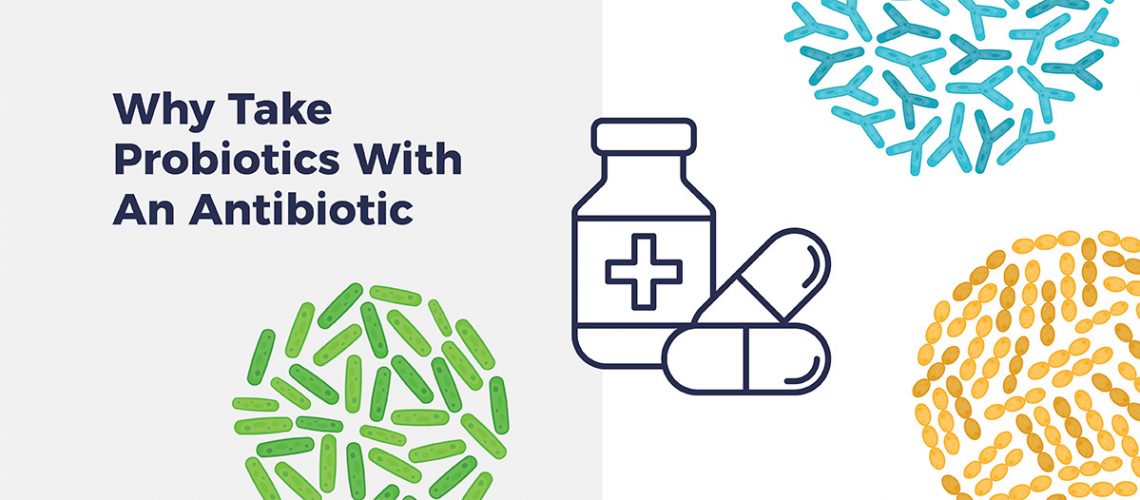Digest This
Click on the topics below to learn how probiotics can improve your digestive health, naturally.

Why Take Probiotics With An Antibiotic
- @drHoberman
- Digestive Health, Drug interactions
Why Take Probiotics With An Antibiotic
We spend a lot of time talking about antibiotics in this space for good reasons.
Once upon a time, antibiotics were considered “miracle” drugs and were prescribed for all kinds of reasons. Many of these uses were justified (strep throat was a fatal disease before antibiotics) but now these drugs are being prescribed for viral infections (common colds and the flu) that often create more health problems than solutions.
It’s hard to dispute how often antibiotics are prescribed inappropriately, based on the recent findings of an Oregon State University report on outpatient visits to health care providers.
In that Oregon State report, roughly 25 percent of the antibiotics were prescribed for the wrong reason and an additional 18 percent were prescribed for no reason at all, amounting to an alarming 56 million prescriptions during the study period.
Unfortunately, this unnecessary overuse of antibiotics coupled with our daily exposure to antimicrobial chemicals has created an environment in which these drugs often don’t work as they should or not at all.
At times in your life, you will need to take an antibiotic to resolve a health problem. That’s a given.
The number one piece of advice we consistently recommend: Take a probiotic, ideally one with multiple strains of beneficial bacteria like EndoMune Advanced Probiotic, to protect your gut, the center of your body’s immune system.
Although previous reports have cited probiotic benefits in reducing gut-related side effects when taking an antibiotic, some still question whether probiotics taken in conjunction with antibiotics protect the healthy composition and diversity of a patient’s microbiome.
However, a recent paper appearing in the Journal of Medical Microbiology confirms what we’ve been saying for a very long time.
The Probiotic Benefits
Researchers from TCU, the University of Texas and Mexico conducted a systematic review of 29 studies published over the past seven years related to how probiotics work alongside antibiotics.
Overall, the report concluded taking a probiotic with an antibiotic lessens or prevents changes to the composition of microbiomes, protects the diversity of species in the gut and even restores friendly bacterial species like Faecalibacterium prausnitzii that reduce inflammation.
When antibiotic treatments were combined with probiotics, the majority of those changes in gut bacteria were less pronounced and some were even prevented, says study co-author Dr. Elisa Marroquin, an assistant professor at TCU.
In fact, Dr. Morroquin says there is no good reason not to take a probiotic when antibiotics are prescribed.
Based on our antibiotic protocol (check out our Antibiotic 101 article), we suggest taking a probiotic like EndoMune about two hours before the prescribed antibiotic to give your microbiome time for those beneficial bacteria to reach your gut and protect your immune health.
Resources
There Is An Endomune Probiotic For Every Lifestyle
-
EndoMune Metabolic Rescue
$44.95 -
EndoMune Advanced Probiotic
$42.95 -
EndoMune Companion Pack
$112.93









